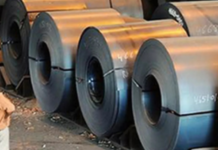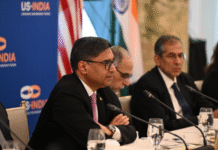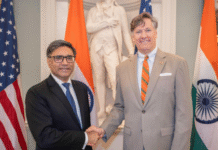By Arun Kumar
Washington– Call it President Barack Obama’s desire to seal his legacy or the Trump effect, as some pundits would have it, he and Prime Minister Narendra Modi celebrated his fourth visit to the US in two years with a flurry of agreements, including one in which the US commits itself to sharing defence technology with India “to a level commensurate with that of its closest allies and partners”.
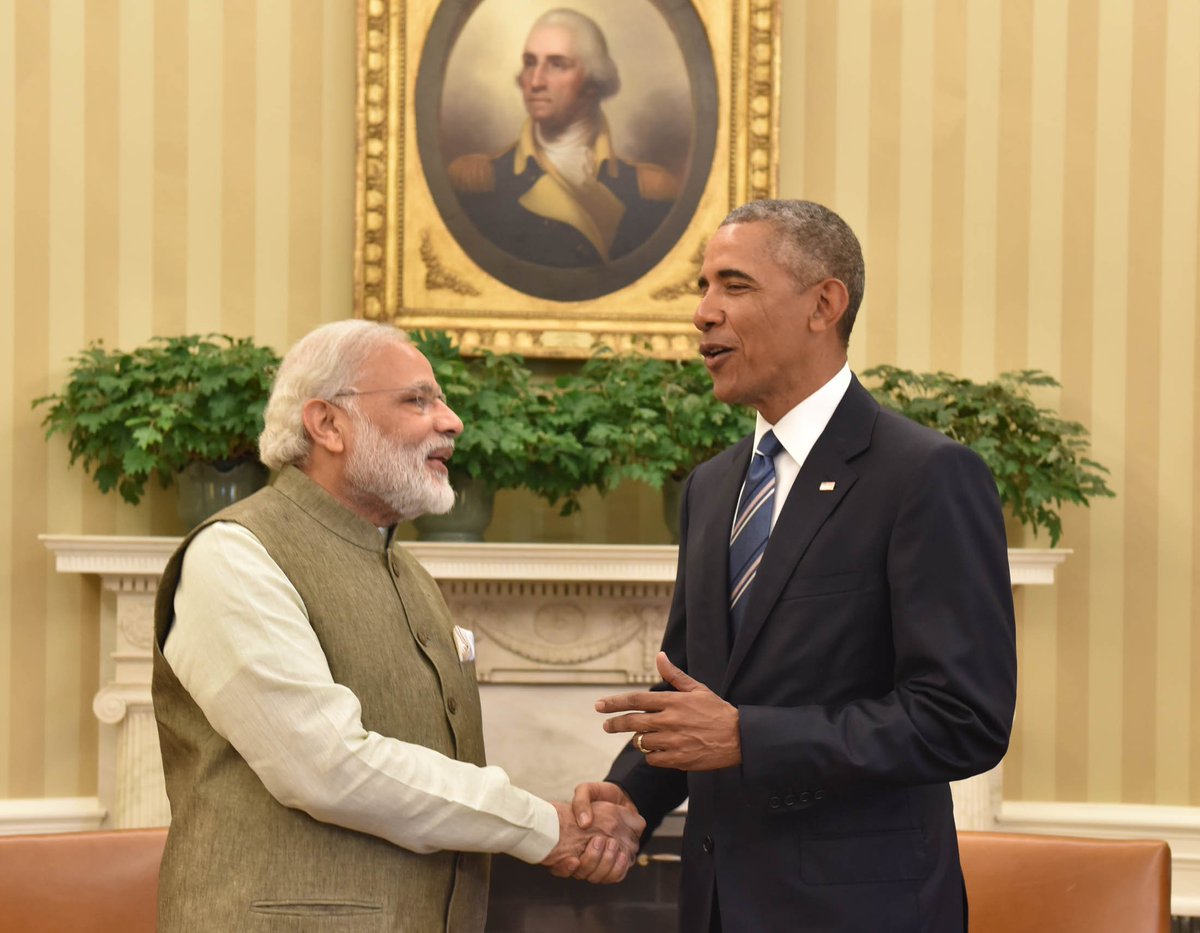 These ranged from climate change to the vexed civil nuclear deal to US recognition of India as a major defence partner to a call on Pakistan to bring the perpetrators of the 2008 Mumbai and 2016 Pathankot terrorist attacks to justice.
These ranged from climate change to the vexed civil nuclear deal to US recognition of India as a major defence partner to a call on Pakistan to bring the perpetrators of the 2008 Mumbai and 2016 Pathankot terrorist attacks to justice.
Marking a big upswing in India-US relations in the last two years, the upshot of Modi’s tête-à-tête with “my friend Barack” at the White House Tuesday was that the “good story continues” in the words of Foreign Secretary S. Jaishankar.
Some icing on the cake came ahead of the third major Modi-Obama summit with reports that none of the 34 current members of the Missile Technology Control Regime (MTCR) had objected to India’s entry to the exclusive club by Monday’s deadline.
Jaishankar would not go beyond saying that India had indeed applied for entry into MTCR, but the joint statement noted “the leaders looked forward to India’s imminent entry” into the club.
Beijing is not a member of MTCR, but it is standing in the way of India’s entry into another exclusive club, the Nuclear Suppliers Group (NSG), at the behest of Pakistan.
And though the membership of the two clubs is not directly linked, if India was found good for entry into one non-proliferation regime, it should be good for the other too, Jaishankar suggested.
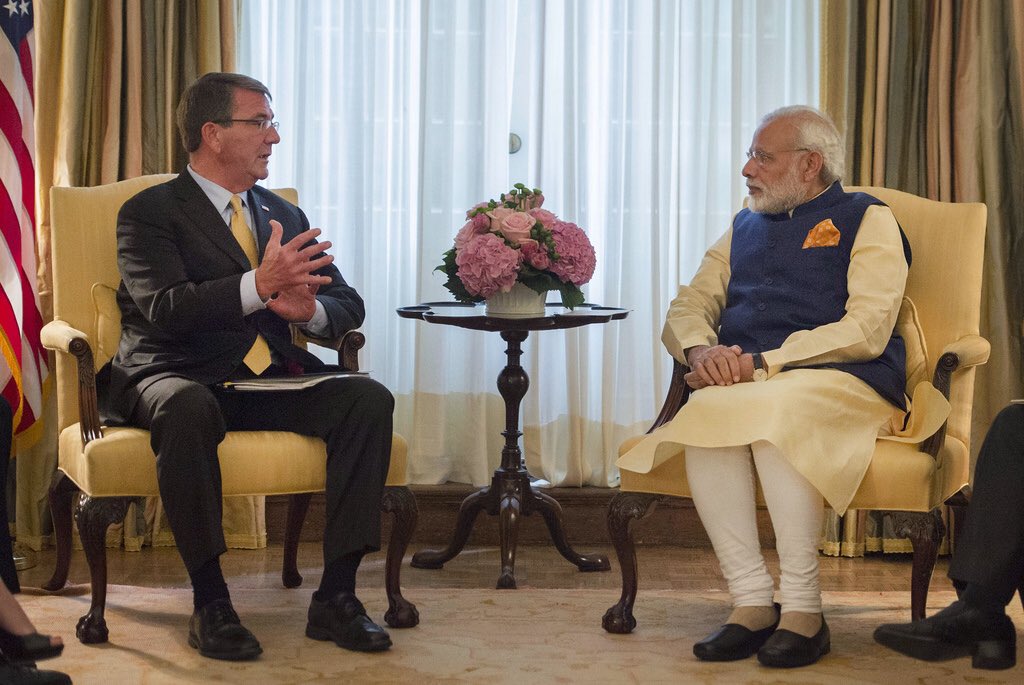
Fresh from garnering support for India’s membership of NSG from Switzerland ahead of a meeting of the Group later this month, Modi thanked Obama for backing New Delhi’s bid for both the MTCR and NSG clubs.
On climate change, the joint statement said “both countries are committed to working together and with others” for the ratification and full implementation of the Paris Agreement “as early as possible.”
US officials suggested that like the US, India had agreed to join the Paris agreement “this year.” But the Indian side stuck to the formulation in the joint statement saying, “India similarly has begun its processes to work toward this shared objective.”
The New York Times suggested that would-be Republican nominee “Donald J. Trump can claim at least some of the credit” for the Modi-Obama understanding on the Paris climate agreement.
Since Trump has vowed to “cancel” the Paris agreement if elected, Obama is working hard to ensure that it becomes binding before he leaves office next January.
Once the accord enters into legal force with at least 55 countries representing 55 percent of global emissions formally joining, no nation can legally withdraw for four years, it said.
On his part, “Modi wants to get as much as he can out of Obama’s last months in office,” the Times cited Ashley J. Tellis, a senior associate at the Carnegie Endowment for International Peace, as saying.
The announcement that India will buy six nuclear reactors from Westinghouse by June 2017 under the stalled India-US civil nuclear deal signed in 2005 also removes another irritant in India-US relations.
And US recognition of India as a Major Defence Partner to facilitate “technology sharing with India to a level commensurate with that of its closest allies and partners” marked another milestone in the growing US-India defence relationship.
The understanding would give India “license-free access to a wide range of dual-use technologies in conjunction with steps that India has committed to take to advance its export control objectives.
But another important dimension of Modi’s June 6-8 visit would unfold Wednesday with an address to a joint meeting of the US Congress eleven years after Washington revoked his visa under a law passed by that very body. (IANS)



